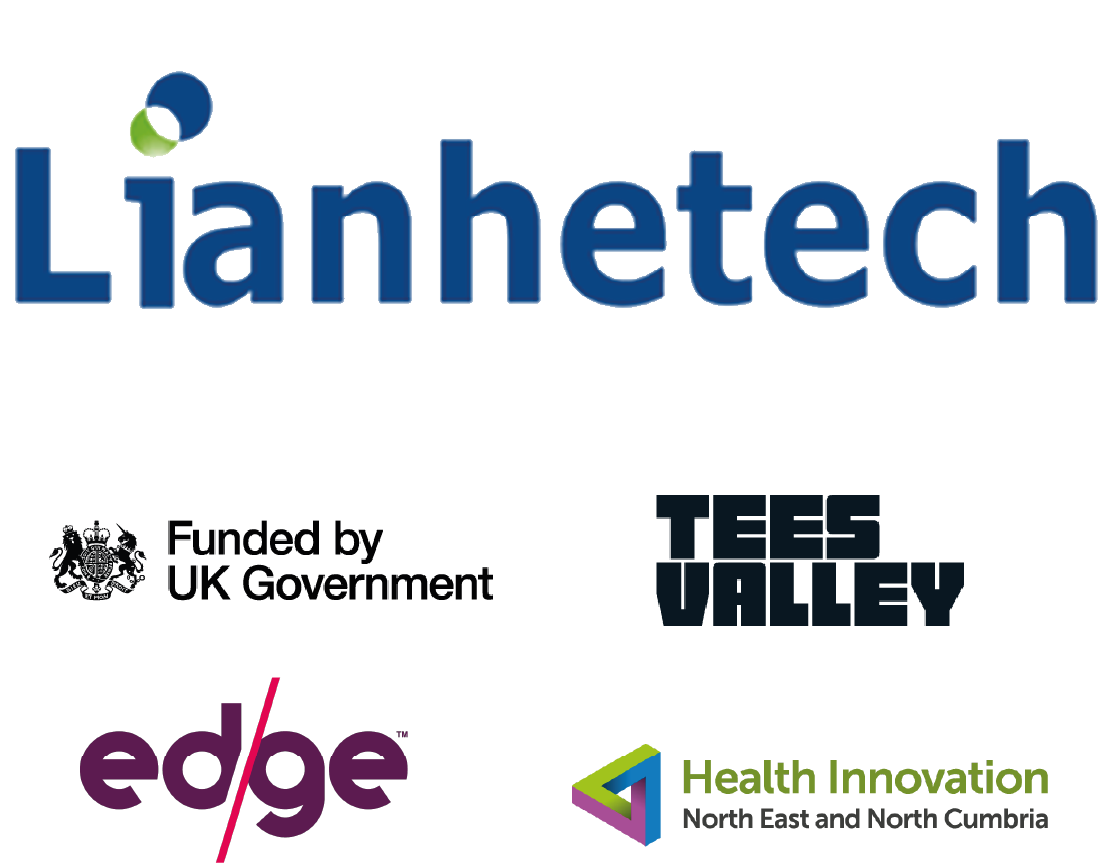
This challenge is currently closed but if you would like to discuss a potential solution, we are still open to conversations. We ran a launch event describing the challenge, which is available on YouTube.
Support is fully funded by the UK Government through the UK Shared Prosperity Fund. Tees Valley Innovation Challenge is delivered by Edge Innovation Ltd and Health Innovation North East and North Cumbria on behalf of the Tees Valley Mayor and Combined Authority, and the Tees Valley Business Board.
About the Challenge Holder:
Lianhetech Seal Sands has over 40 years of manufacturing experience and is a leading European contract manufacturer of high quality fine chemicals for use in the crop protection, pharmaceutical and performance chemicals markets.
The Seal Sands site includes four manufacturing buildings with a range of capabilities, from custom synthesis of challenging, high hazard chemicals to toll manufacture and anything in between. It operates a Quality System from ISO 9001 to cGMP which has been audited by UK MHRA in 2022. The site is ISO 14001 and 45001 certified.
The site provides contract manufacture services for global industry players, typically operating multiple processes simultaneously in campaigns which vary from weeks to months. This means that there is significant variation in the materials used and emissions generated. The company is highly focussed on emissions control, striving to reduce these and meet and exceed regulatory commitments.
As an innovative company which aims to lead the way in emissions reduction, the company believes there is a potential to achieve more effective and efficient emissions control.
This is consistent with the company’s values and commitment as a key local employer and contributor to the local economy, whilst also being a responsible neighbour with a sustainable manufacturing capability.
About the challenge: Leading the way in emissions reduction
Manufacturers in relevant industries are required to implement “Best Available Techniques” to reduce emissions. These Best Available Techniques (or BATs) are reviewed by industry and regulatory bodies, with updates shared via Best Available Techniques Reference Documents (BREF).
This challenge specifically relates to Lianhetech Seal Sand’s approach to reducing volatile organic compounds (VOCs) to air. These can be in the form of either “channelled” emissions through abatement systems or “diffuse” emissions, eg through leaking joints in pipework.
It is becoming clear that manufacturers will need to make significant reductions in their VOC emissions over the coming years. This will likely require step changes in technology and capability associated with VOC abatement systems. This will involve significant technical, procedural and financial challenges and opportunities, that will require innovative thinking and investment.
As a toll manufacturer, the site must retain the flexibility to produce varied products for multiple uses, using varied processes and materials. The industry is also cost-sensitive and competitive: therefore, for the site to maintain its commercial advantage whilst meeting the future VOC emissions targets, it will need to review current and up-coming VOC abatement technologies.
This challenge is focussed on identifying local partners to work with the company to identify:


Lianhetech Seal Sands utilises its existing expertise and asset base to reduce VOC emissions wherever possible. The company fully complies with regulatory requirements, striving to exceed these. As a responsible manufacturer, it wishes to do more to:
The site welcomes the opportunity to bring in external perspectives on the problem to identify new and improved approaches.
Lianhetech Seal Sands’ regulatory team and the regulators themselves are strongly aligned on reducing VOC emissions as BAT allows. There is likely to be pressure from regulators to move further and faster on this issue over the coming years, providing motivation for change and potentially investment.
From a wider chemical industry point of view, the issues facing Lianhetech Seal Sands are common to many industry players and viable solutions developed through this challenge would be useful across different organisations.
From an employee and local authority point of view, Lianhetech Seal Sands is a major employer and an important contributor to the local economy. Not solving the issues raised could put this at risk if the result is that Lianhetech Seal Sands is less competitive on the global market.

Lianhetech Seal Sands would like to be in position where:
A good outcome would be a collaborative approach with local experts and innovators, to achieve reductions which also achieve our other operational and commercial needs.
For regulatory staff, good solutions will ensure compliance with regulatory requirements and continued strong relationships with statutory regulatory bodies.
For the wider chemical industry, a successful outcome will ensure the UK’s industry remains competitive, whilst achieving the highest possible standards of environmental compliance. Good solutions could also mean reduced costs in operation through greater efficiencies.
For employees and local authorities, the aim is to ensure that Lianhetech Seal Sands, and the wider local chemicals industry cluster, remains competitive going forward and continues to support significant local employment.


Lianhetech Seal Sands operates four manufacturing buildings, with five emissions points.
More details will be provided to the shortlisted solution providers in Phase 1.
Currently, more efficient and effective VOC emission mitigation is limited by:
Cost implications and resources required to implement any solutions.

At the end of this work, Lianhetech would like to achieve a step change in reduction of VOC emissions, putting it at the forefront of sustainable and environmentally friendly manufacturing operations. This is likely to require:
Developing roadmaps to VOC emissions reductions in the immediate, medium and long term.


Current risks are around:

A successful outcome will enable:


To access this support, you must be a small or medium-sized business based in Tees Valley (Darlington, Hartlepool, Middlesbrough, Redcar & Cleveland, or Stockton-On-Tees).
Support is fully funded by the UK Government through the UK Shared Prosperity Fund.
Tees Valley Innovation Challenge is delivered by Edge Innovation Ltd and Health Innovation North East and North Cumbria on behalf of the Tees Valley Mayor and Combined Authority, and the Tees Valley Business Board.
Oops! We could not locate your form.